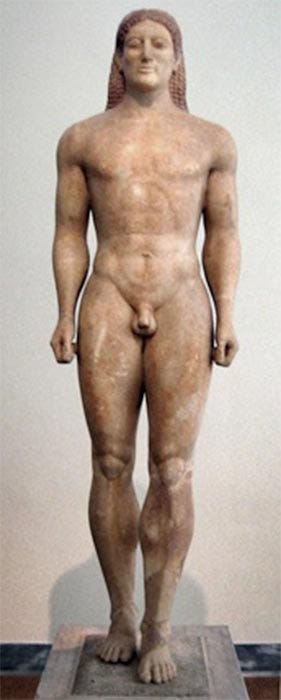Hair-Raising Status of Ancient Gods and Men
Human hair has always played an important role in culture and in society. For men and women alike, styling one's hair seems to be an innate human desire to emphasize their beauty and power. Thus, apart from being interesting and rather beautiful, hairstyles in history have acted as markers that revealed a person's social status and membership of a tribe or group, social class, age, marital status, political beliefs, and many more.

Although, perhaps understandably, much attention has been given to ancient women's hairstyles, one should not underestimate the hairstyles of men in the ancient world. In ancient Greece, for example, beauty was all important to the men - perhaps even more so than to the women. A handsome, full-lipped, chiseled man in ancient Greece understood that his beauty was a gift of the gods and that a beautiful body was considered direct evidence of a beautiful mind. Therefore, a beautiful ancient Greek man had no qualms in spending more than eight hours a day at the gym to maximize his assets. Bearing this in mind, doubtless such a man would have considered it his duty to pay special attention to his hair as well. Somewhat similarly, the ancient Chinese believed that hair and skin were given to one by one’s parents. Therefore, cherishing one’s hair (keeping it long and luxurious) and skin (keeping it fresh and blemish-free) was the beginning of filial piety.


